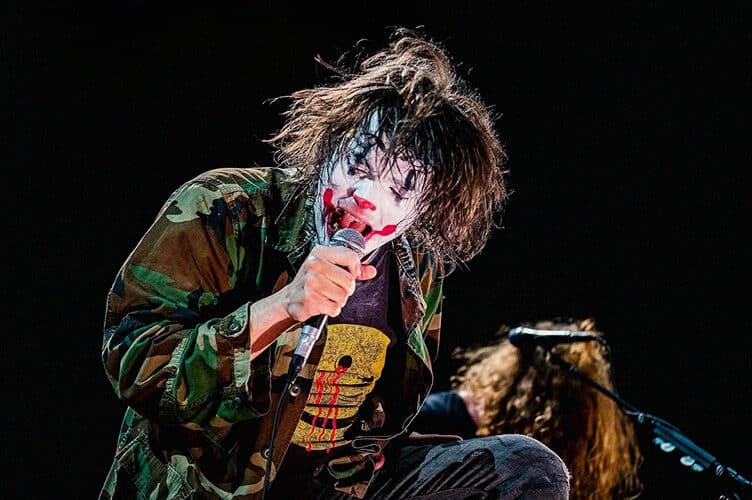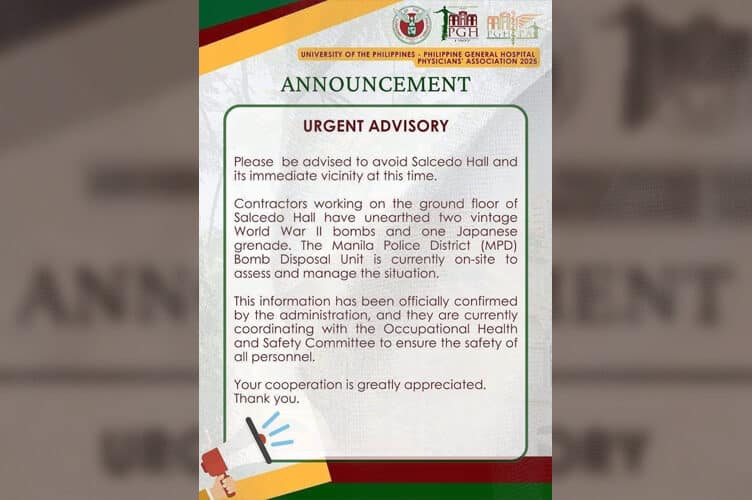MUSIC, being an indispensable part of pop culture, has an inexplicable consuming effect on listeners of all ages, across all generations. Being the world’s universal language, music is that one thing that defines an era.
And so inevitably, people don’t just love the songs; they, too, fall deeply for the singers.
This is why band break-ups deal a crushing emotional blow to fans. The pain of missing the band and their music can sometimes, or oftentimes, last a lifetime. And for some, moving on from band splits takes forever.
Fans want bands to stay together forever, but this is because they tend to be unaware that behind the scenes, problems beset the groups. These inevitably take a toll on the band’s performance and overall well-being of the members.
Disbandments, however aren’t always a bad thing. Sometimes break-ups lead to the birth of new careers while others simply lead to the death of the band.
Let’s take a look at some of the most controversial band break-ups in OPM history and what happened to them after.
- Eraserheads
Image: (from left) Buddy Zabala, Marcus Adoro, Raimund Marasigan and Ely Buendia via Eraserheads Forever Facebook
Perhaps the most controversial disbandment in OPM history is that of iconic ‘90s alternative rock group Eraserheads.
Dubbed as the “Banda ng Bayan,” the group of Ely Buendia, Raimund Marasigan, Buddy Zabala and Marcus Adoro that was formed in the halls of the University of the Philippines-Diliman in 1989 caused a music revolution in the ‘90s. With their casual shirts and jeans, grunge image and classic barkada sound, they broke away from the pack of classic tuxedoed ballad singers and the sound of the ‘80s and decades prior.
They spearheaded the second wave of OPM take-over, the first one being the so-called “Manila Sound” during the ‘70s.
With hits such as “Pare Ko,” “Alapaap,” “Overdrive,” “Huling El Bimbo” and many others, the group struck straight through the sensibilities of young people during that time, resonating with their emotions, experiences and aspirations.
Because of this, the Erasherheads were catapulted to skyrocketing fame, even earning them numerous international recognitions.
With their success and influence over an entire generation, people’s love for the group grew so intense that no one ever thought they would ever part ways.
But internally, things weren’t going well. The relationship between the four had become frayed due to issues not disclosed to this day. The heat of their disagreements did not subside and eventually led to their shocking disbandment in 2002. Later, Ely broke hearts yet again when he said in a podcast interview that he and his former bandmates were “never friends.”
Stories have it that the group received a text message from Ely saying, “It’s time to graduate.” The group then still had a stretch of booked shows and performances which it solved by employing new members. However, the band eventually called it quits.
In 2008, fans were stoked once again when the group returned to the stage for a one-night-only reunion concert. But it was cut short after Ely had to be rushed to the hospital due to a heart attack and had to undergo another angioplasty procedure.
In 2009, “The Final Set” reunion concert was staged after the frontman had recovered.
Last year, the group staged its most iconic reunion ever, the “Huling El Bimbo” which drew an overwhelming 75,000-strong crowd, all waiting to be transported back in time with their hits. Shortly after the concert, Ely hinted of a world tour.
2. Callalily

After 17 years of generational hits, Callalily came to an end.
In an earlier interview, former frontman Kean Cipriano admitted that he is not on good terms with his former bandmates.
“It’s hard to stay in a place where you’re not happy anymore, where you’re uninspired, and where you don’t feel valued and respected. You can’t hide the feeling that the spark, the magic is gone. I was no longer happy,” he said.
Kean also said the band’s stagnation during the height of the pandemic played a crucial role in his decision about his future. He also shared that long before the pandemic, he had already been contemplating about departing from the band to start his own career.
One prominent argument that the band had was about the intellectual rights to the band’s name. The former frontman, in an interview, claimed that he owned the rights to it.
“You have to understand also that I came up with the name ‘Callalily’ and it’s under my intellectual property,” he said.
He sent a licensing agreement to the group so that it may continue using the name. But he said the other members stopped responding after he made his move.
The band’s other members, however, disputed his claims regarding the license to use the name ‘Callalily.”
To finally settle the argument about the band’s name, the group changed its name from Callalily to just Lily. The members also went on to search for the next vocalist of the band. Singer Joshua Bulot is now the group’s new frontman.
Meanwhile, Kean is now the CEO of his own record label, OC Records.
3. Rivermaya
Another iconic OPM disbandment that hit fans hard was that of Rivermaya. The group that gave the hits “Awit ng Kabataan,” “214,” “Elise,” “Himala,” “Kisapmata” and many others have had a long list of changes through the years.
The band was formed in 1993 with a whole different set of members which included eventual ex-frontman Rico Blanco, who was then on keyboards.
It was in 1994 when the band hit peak mainstream success. By this time, the first change in line-up had already happened. Bamboo Mañalac, Nathan Azarcon, Perf de Castro, Mark Escueta and Rico Blanco now made up the band, and from then produced songs that massively contributed to the music explosion during the ‘90s.
However, in 1998 while on a US and Canada tour, Bamboo decided to remain in the US with his family. While in the US, Bamboo did odd jobs, from selling shows to being a bus boy, a far cry from his rockstar life in Manila. Sans the glaring lights and the screaming fans, Bamboo said this normal life actually made him feel more human.
Meanwhile, Rivermaya decided to soldier on with Rico Blanco on vocals. By 2001, it endured yet again another line-up change with the departure of Nathan. The group, however, still soared high and added an international recognition to its achievements. In February 2005, it won as Favorite Artist from the Philippines in the MTV Asia Awards 2005.
In 2007, Rico announced his departure from the group, citing personal reasons for his decision. Presently, the band still plays from time to time and is composed of members Mark, returning bassist Nathan, and guitarist Mike Elgar. In 2019, it was honored with the MYX Magna Award for its massive contribution to OPM rock band history.
4. Bamboo
After the former Rivermaya frontman left the group, he went on to make another band, his namesake, Bamboo.
Now composed of Bamboo himself, Nathan Azarcon, Ira Cruz and Vic Mercado, Bamboo made his music scene comeback with the release of the band’s 2004 debut album “As the Music Plays.”
The album featured the chart-topping anthems “Noypi” and “Hallelujah.” The band was at its peak when it disbanded in 2011, leaving fans dumbfounded.
In an open letter, Bamboo addressed the hurt fans.
“As a group, we’ve come to a point where you have to trust your gut, your heart and your head and accept that all things change. The hardest part as always is to know when to pack it up and part ways,” he said.
“We’ve learned that this journey is not only about us but includes all who came along for the trip. Family, friends, and of course our front row believers who were there for the best reason of all. To simply listen. So it didn’t come easy winding down to this decision,” he added.
5. Up Dharma Down
The group is behind the hits “Tadhana,” “Oo” and “Unti-unti.”
After a series of iconic relatable hits, Up Dharma Down announced on Facebook in December 2021 that its lead vocalist, Armi Millare, had left the band. Although the group felt sad about her departure, the members still went on to support her in her endeavors.
Meanwhile, Carlos Tañada, Ean Mayor, and Paul Yap said they will continue making music under Terno Recordings.
How useful was this post?
Click on a star to rate it!
Average rating 0 / 5. Vote count: 0
No votes so far! Be the first to rate this post.
We are sorry that this post was not useful for you!
Let us improve this post!
Tell us how we can improve this post?








